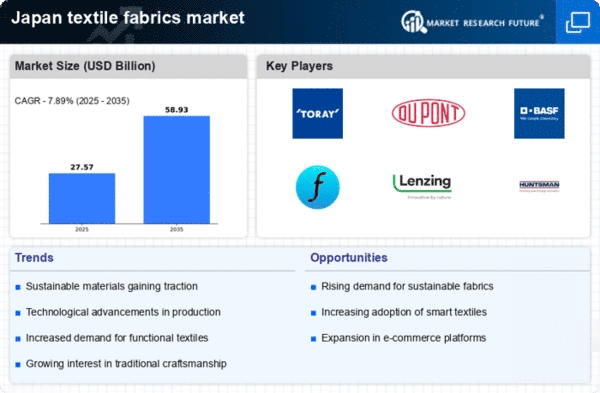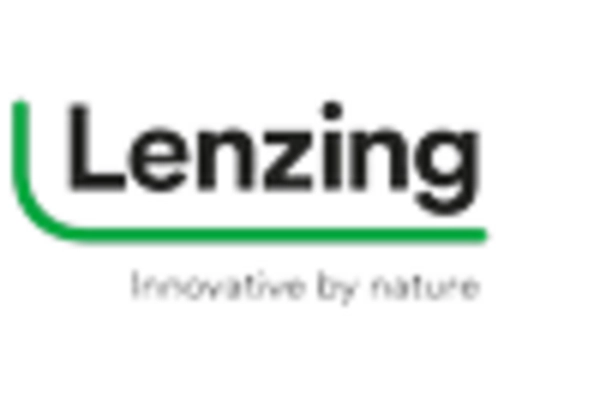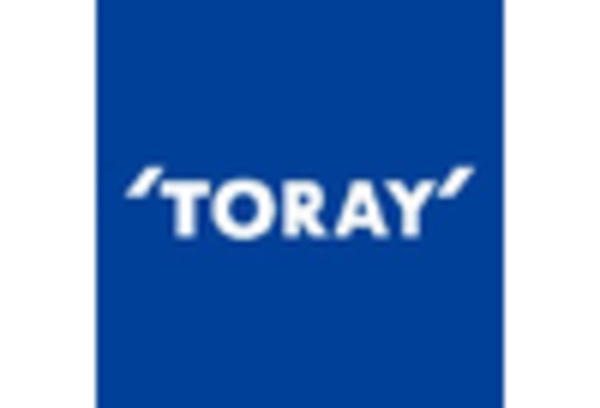The textile fabrics market in Japan is characterized by a dynamic competitive landscape, driven by innovation, sustainability, and technological advancements. Key players such as Toray Industries (Japan), Teijin Limited (Japan), and DuPont (US) are at the forefront, each adopting distinct strategies to enhance their market positioning. Toray Industries (Japan) focuses on advanced materials and sustainable practices, aiming to lead in high-performance textiles. Teijin Limited (Japan) emphasizes eco-friendly production methods, aligning with global sustainability trends. Meanwhile, DuPont (US) leverages its extensive research capabilities to innovate in specialty fibers, thereby enhancing its competitive edge. Collectively, these strategies contribute to a robust competitive environment, fostering growth and adaptation in response to evolving consumer demands.In terms of business tactics, companies are increasingly localizing manufacturing to reduce lead times and enhance supply chain efficiency. The market structure appears moderately fragmented, with several key players exerting influence while also facing competition from smaller, niche manufacturers. This fragmentation allows for diverse offerings, yet the presence of major corporations like BASF (DE) and Invista (US) ensures that innovation and quality remain paramount in the market.
In October Toray Industries (Japan) announced a partnership with a leading tech firm to develop smart textiles that integrate wearable technology. This strategic move is likely to position Toray at the cutting edge of the smart fabric segment, potentially attracting a new customer base interested in health monitoring and performance enhancement. The collaboration underscores the importance of technological integration in textile innovation.
In September Teijin Limited (Japan) launched a new line of biodegradable fabrics aimed at reducing environmental impact. This initiative not only aligns with global sustainability goals but also enhances Teijin's brand image as a leader in eco-conscious textiles. The introduction of these fabrics may appeal to environmentally aware consumers and businesses, thereby expanding Teijin's market share.
In August DuPont (US) unveiled a new manufacturing process that significantly reduces water usage in fabric production. This development is crucial in addressing the growing concerns over water scarcity and environmental sustainability. By adopting such innovative practices, DuPont not only enhances its operational efficiency but also strengthens its commitment to sustainable manufacturing, which is increasingly becoming a competitive differentiator in the textile industry.
As of November the competitive trends in the textile fabrics market are heavily influenced by digitalization, sustainability, and the integration of artificial intelligence. Strategic alliances among companies are shaping the landscape, fostering innovation and collaboration. The shift from price-based competition to a focus on technological advancement and supply chain reliability is evident. Companies that prioritize innovation and sustainability are likely to gain a competitive advantage, suggesting that the future of the market will hinge on the ability to differentiate through quality and technological prowess.
















